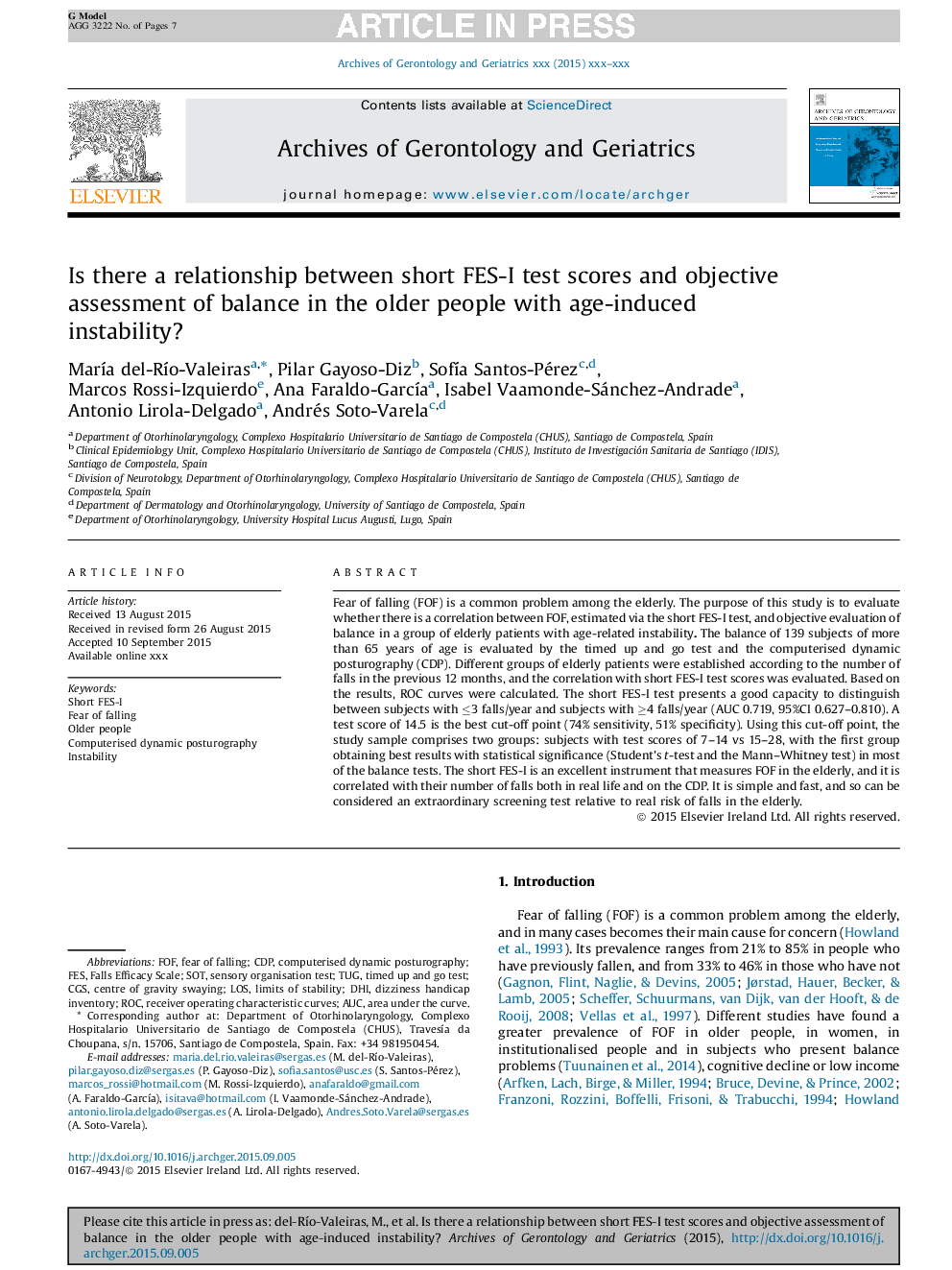| Article ID | Journal | Published Year | Pages | File Type |
|---|---|---|---|---|
| 8257644 | Archives of Gerontology and Geriatrics | 2016 | 7 Pages |
Abstract
Fear of falling (FOF) is a common problem among the elderly. The purpose of this study is to evaluate whether there is a correlation between FOF, estimated via the short FES-I test, and objective evaluation of balance in a group of elderly patients with age-related instability. The balance of 139 subjects of more than 65 years of age is evaluated by the timed up and go test and the computerised dynamic posturography (CDP). Different groups of elderly patients were established according to the number of falls in the previous 12 months, and the correlation with short FES-I test scores was evaluated. Based on the results, ROC curves were calculated. The short FES-I test presents a good capacity to distinguish between subjects with â¤3 falls/year and subjects with â¥4 falls/year (AUC 0.719, 95%CI 0.627-0.810). A test score of 14.5 is the best cut-off point (74% sensitivity, 51% specificity). Using this cut-off point, the study sample comprises two groups: subjects with test scores of 7-14 vs 15-28, with the first group obtaining best results with statistical significance (Student's t-test and the Mann-Whitney test) in most of the balance tests. The short FES-I is an excellent instrument that measures FOF in the elderly, and it is correlated with their number of falls both in real life and on the CDP. It is simple and fast, and so can be considered an extraordinary screening test relative to real risk of falls in the elderly.
Keywords
Related Topics
Life Sciences
Biochemistry, Genetics and Molecular Biology
Ageing
Authors
MarÃa del-RÃo-Valeiras, Pilar Gayoso-Diz, SofÃa Santos-Pérez, Marcos Rossi-Izquierdo, Ana Faraldo-GarcÃa, Isabel Vaamonde-Sánchez-Andrade, Antonio Lirola-Delgado, Andrés Soto-Varela,
